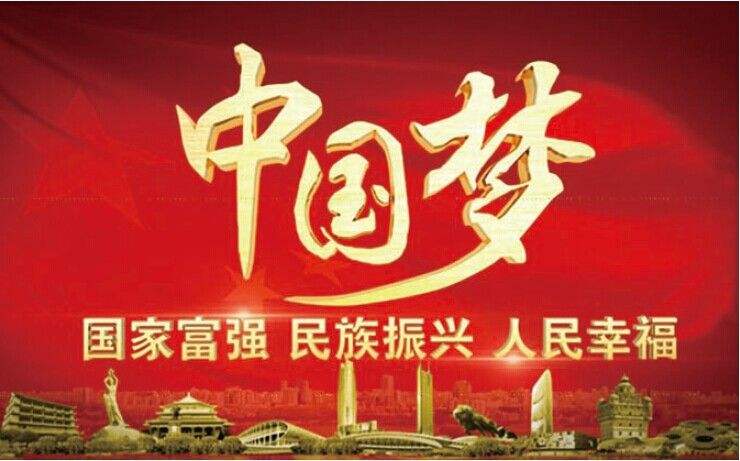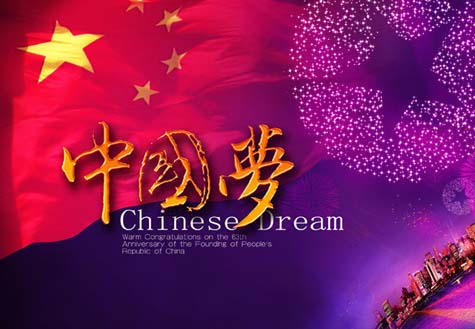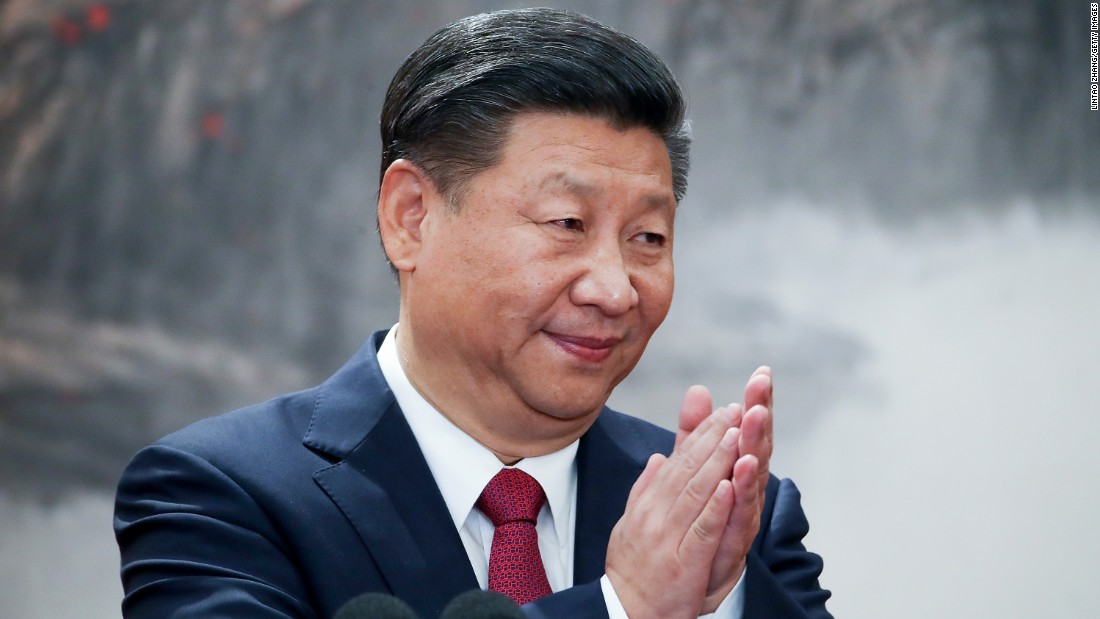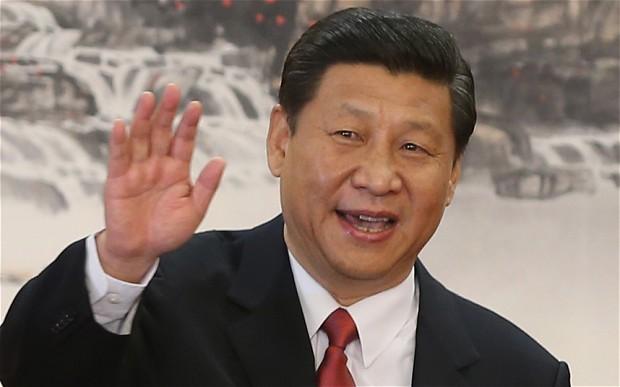 
 字體:小 中 大
字體:小 中 大 |
|
|
|
| 2018/03/14 14:16:18瀏覽823|回應0|推薦5 | |
|
習近平戊戌變法成功 ? 習氏無限任期對中國經濟有何影響? 習近平已經把自己打造成中國近幾十年來最強大、最專權的領袖。但是他把自己任期無限延長的做法,對於中國經濟來說,可能是他所做過的最具風險的決定。 中國正在回歸終身制的時代。目前的問題是,這是否意味著:中國是否即將告別幾十年來穩健的經濟管理模式?這是西方擔憂的重大議題.
你們台灣人好像是不痛不癢,老神在在,中國對台灣的31項優惠措施,是長期的優勢策略,筆者分析短則3年,慢則5年,定會顯示出成績,屆時台灣人,又有許多主動回歸祖國的各行各業以及各人與團體,. 現行上海證券市場與香港證券市場,是互通有無,互助合作,互惠的,有觀察家分析認為2020年時期左右,會開通台灣證券市場與上海證券及市場香港證券市場3通的局面,就是所謂的滬,港,台,聯合證券交易,讓3地的資金流通有無,也益於引進國際資金投資,進一步的投資開發一帶一路的資本市場,因為美國與日本也將在2020年前加入亞頭行AIIB,成為會員國,去分享一帶一路誘人的市場,你們台灣人千萬不要錯失良機,要承認”九二共識,一個中國”,不要再座以待弊的井底之蛙,為了下代的子孫.
引發西方國際戰略專家及經濟學者熱烈討論,中國日後的經濟發展模式,如何因應,眾所周知在毛澤東掌管中國的時期,是以國家計劃經濟為主軸的發展經濟,什麼生產大躍進,大煉鋼,超英趕美,等政策,將中國經濟攪亂,一落千丈,鄧小平時代開啟了所謂的改革開放的經濟政策,中國的經濟狀況漸入佳境,江澤民,胡景濤時代依舊,蕭規曹隨沒有多大變動,直到習近平掌權後西方國際戰略專家及經濟學者已發現,中國的經濟政策有所調整,到底是走西方資本主義的市場經濟原則,或是走回頭路發展國家計劃經濟政策,令人無法揣測 ,
自從2001年啟中國企業界大舉踏進國際企業界大肆收購,各行各業,西方學者專家擔憂,中國夾帶巨額外匯存底,大幅併吞國際間的企業,例如高價位購買民生物資,小麥,大麥,玉米,棉花,紙漿,畜產品,甚至於活豬,牛,羊,漁類水產品類,至於行的方面收購歐洲著名的汽車生產廠商,民用飛機,和美國歐盟合作,生產製造,最後學會關鍵技術,自行研發製造中國派的民用客機,導致201802 法國總統馬克宏,訪問中國時,再度推銷空中巴士AIR BUS 廣體客機,遭到中國拒絕購買,一般相信2020年時中國與美國波音公司合作生產的大型客機,也會被中國以合作到期,不再續約為由,終止合作,由中國自行建造生產,如此一來西方列強原本優勢的強項,如今已被中國模仿學習,而且改進缺點,為自己鋪路.
再說德國某大鋼鐵廠房,原封不動轉售給予中國企業界,令人驚訝的是這家德國優秀的鋼鐵廠,3年後竟然出現於中國,從重新點火冶煉鋼鐵產品,其中最重要的煉鋼配置方程式,生產各式各樣軍艦,潛艦,坦克車的鋼鈑,就這樣子由中國取得機秘,無形中協助中國發展軍火工業,提昇中國的國防武力,這是德國人,當初始料未及的大事件. 至於中國對於非洲的掌握與開發無庸至疑的是已被中國玩弄於掌股之間非洲50餘國一面倒是的跟隨中國進行所謂中國派式的建設與開發尤其甚者就是基礎建設諸如公路鐵路港灣橋樑皆是中國廠商的天下當然美好的模式就是學習中非合作無往不利.最近通車的肯亞鐵路就是最好的例證,中國製造品質保證,價格公道.`
如今習近平無限任職案順利通過,他將帶來何種經濟改革,令人注目,必竟13餘億人口的大國,任何一種政策的實施,必然引起國際間的注意與警訊,習近平在中國戊戌年實施政治改革,無疑的是另類的戊戌政變事件,吾人視目已待習近平領導之下的中國共產黨,會有新的作為及成績,呈現於世人.
中國已是全球第二大經濟體,2025年時期左右,勢所難免超越美國,成世界第一大經濟體系,屆時人民幣毫無疑問的大幅度升值,國家財經專家預測, 以美元計價的石油,黃金,各式各樣的商品及外匯交易將被以人民幣計價的1/3 的比例取代,人民幣,美元,歐元,是國際貨幣市場的主流,形成3強鼎力的局面, 國際間貨戰爭早已開始,人民幣與美元兌換值約為US$1:RMB 3.,人民幣與歐元兌換值約為EU$1: RMB3.5.
世界上主要銀行體系的ATM 提款機,屆時早已加裝提取人民幣現鈔的服務功能,而且由中國銀行發行的信用卡結算系統,大受好評,無須轉換接以人民幣清算結帳皆大歡喜,這樣一來如果您申請辦理中國信用卡,換句話說就是有錢人吃遍天下?
20180311日,中國人民代表大會,通過取消主席任期限制的一項憲法修正案。為習近平無限期執政鋪平道路。 中國經濟目前運行狀況良好。經濟增長與去年同期相比上漲了6.9%。20180312,中國總理李克強宣佈2018年中國經濟的增長目標為6.5%左右。在座無虛席的人民大會堂裡,李克強表示:中國經濟的基本面依然不錯……但仍然需要面對許多挑戰,政府有足夠的調控工具來避免金融上的風險。
雪梨智庫洛伊國際政策研究所(Lowy Institute for International Policy)的中國專家(Merriden Varrall)認為,一切還要看"你認為受控制的經濟是有內在的可持續性還是有風險"。他表示,到目前為止,中國一直在蔑視黨控制經濟是有風險的這種說法;另一方面,"在政治局勢陷入緊張時",中國又收回了一些迫在眉睫的經濟改革措施。 一切照舊?習近平鞏固權力的做法將為他推行當前的經濟政策助力。然而,中國共產黨持續滲透在中國運營的國際大型跨國公司的做法會讓外國投資者的日子不好過,研究公司TS Lombard中國區研究員(Jonathan Fenby)如是說。 習近平最大的問題:缺乏誠實的反饋在習近平追求獨裁,將自己暴露於風口浪尖上的一大風險是:在其他國家領導人需要面對政治精英層的質疑和挑戰時,習近平卻缺乏誠實的反饋,而這會導致他做出錯誤的決定。 加州大學聖地亞哥分校教授(Susan L. Shirk)分析稱:"習近平在國內不受任何約束。他大權在握,身邊都是些諂媚者"。為了完成習近平帶領中國擺脫貧困的目標,在制定經濟政策方面,他不能犯錯。 Xi Jinping isn’t going anywhere. This week the Chinese Communist Party proposed amending the country’s constitution to abolish presidential term limits. Under the current rules, Mr Xi is due to step down in 2023, after two terms. Once that formal constraint is eliminated, there will be nothing to stop him from staying in office however long he likes – as the Communist Party’s chief and China’s president.
Behind this news, sidelining constitutional restraints is a deeper trend: Under Mr Xi’s leadership, the Communist Party is devouring China’s governing institutions while promoting its ideology for export like never before. Mr Xi’s message to the world is that autocracy is a viable system of government. That makes China not only an economic and security rival for the US but an ideological one.
If such a change isn’t obvious, that may be because the old habits of Leninist secrecy die hard. The Communist Party’s powerful departments that control personnel and policy still do not list their phone numbers or display signs outside their offices. Likewise, the party continues to enforce a strict code of silence about its internal operations. But elsewhere the party has become more open about its grip on business and society. To take one example, Chinese state companies listed abroad have long filed misleading prospectuses that omitted the party’s pivotal role in their operations, including the hiring and firing of senior executives. Recently Beijing reversed course. Some state companies listed in Hong Kong now include in their articles of association a broad description of the party’s role in “managing the overall situation.” The meaning of this change is clear: Power over corporate decisions and personnel that the party used to wield behind the scenes can now be exercised explicitly.
Meanwhile, the party has solidified its formerly haphazard effort to establish cells inside large Chinese private enterprises, as well as within foreign companies and joint ventures operating inside China. Any substantial private company, whether local or foreign, is now expected to include party cells.
Since the party sits above the law, this means that core functions of state-owned enterprises and private companies alike are free from legal and regulatory oversight. European businesses have tried to push back. “A fundamental change of this nature would introduce an additional layer of governance and would have serious consequences for the independent decision-making ability” of these ventures, the European Chamber of Commerce in China said in a statement last year. But Beijing has airily dismissed these objections as little more than a failure by foreigners to understand Chinese corporate governance. This new direction is being set at the top. As Mr Xi said in October at a party conference that convenes every five years: “Government, the military, society and schools, north, south, east and west – the party leads them all.” He delivered the same message to the world in December at a conference in Beijing hosted by the Communist Party. Delegations from more than 100 countries attended, according to a Reuters report, including Myanmar’s Aung San Suu Kyi and representatives from the United Russia party and America’s Republican National Committee. Yes, Beijing is flaunting its growing diplomatic and military power on the world stage, but it goes far beyond that. Increasingly, China is promoting its system as an alternative to Western democracy, something that was rare even five years ago. Mr Xi now talks about the “China solution” for a world facing political and financial turmoil. In place of such uncertainties, which Beijing blames on the West, Mr Xi lauds China’s “wisdom” of global governance.
In steering China toward his vision, Mr Xi has had to be more open about both the communist system and the country’s ambitions. Since Mr Xi came to power in 2012, he has centralised power in his office and within the party, while allowing the policymaking functions of the broader bureaucracy to wither. Overseas, China has become more strident in its drive to become a superpower, particularly in Asia, where it aims to dislodge the US as the dominant force.
At the December conference, Mr Xi promised that Beijing “will not import other countries’ models, and will not export the China model.” But this is true only up to a point. The Chinese system, which combines a Leninist-style party with a centuries-old bureaucratic culture, can’t easily be replicated elsewhere. What Mr Xi is really promoting is something else: the idea that authoritarian political systems are not only legitimate but can outperform Western democracies.
China’s rivalry with the US is not the same as the Soviet Union’s competition during the Cold War, which pitted capitalism against Marxism. Beijing formally follows the dictates of Marxism-Leninism, but its ideology is one of state power. Although China has always been ready to support other autocracies when doing so was in its interest, Mr Xi’s party is now touting itself forcefully as an example of a governing system that works.
It is a pity, then, that America’s political system remains in such upheaval. Rarely has the soft power of a thriving democracy been more needed.
|
|
| ( 時事評論|兩岸 ) |




















